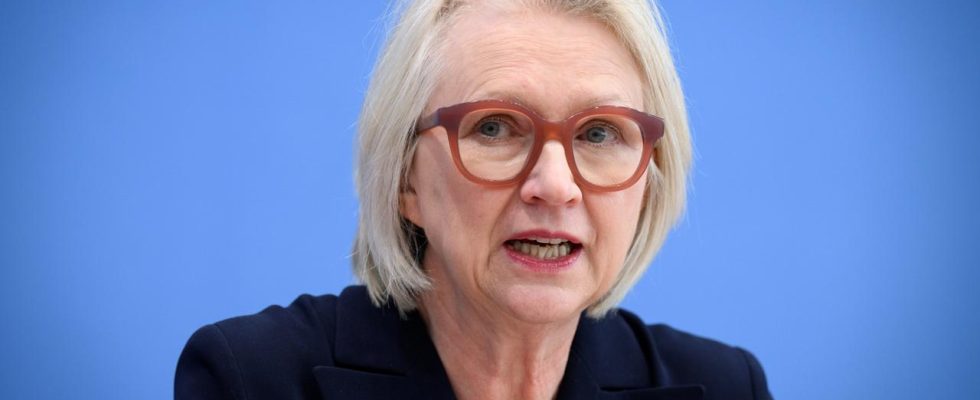How can the state get the billions it is missing after the Federal Constitutional Court’s ruling? One option would be to suspend the debt brake. In addition to the SPD and the trade unions, one of the “economic methods” is also demanding this.
Following the Federal Constitutional Court’s budget ruling, there are increasing calls to suspend and reform the debt brake. “In the short term, the federal government must suspend the debt brake again,” said Stefan Körzell, board member of the German Federation of Trade Unions (DGB), to the “Rheinische Post”. “There is a good reason for this, because the effects of the energy crisis are far from over.”
The latest Constitutional Court ruling shows that the debt brake is more inflexible and anti-investment than many in Germany had thought. “There is no way around a fundamental reform of this brake for the future. The reform should aim to exclude net investments from the debt rule in the future,” said Körzell.
“Economy”: Reform in the medium term at most
The chairwoman of the federal government’s economic advisory committee, the so-called economic experts, Monika Schnitzer, also made similar comments. “Greater scope for debt financing of net investments” could provide relief for climate projects that are now at risk, said Schnitzer. “A transparent solution could be to justify a renewed exemption from the debt brake based on the effects of the energy crisis and the resulting additional expenditure required to cushion the burden and the necessary expansion of energy supply.”
However, a fundamental reform only seems realistic in the medium term, Schnitzer continued. Politicians will probably not be able to agree on this in this legislative period.
The left wing of the SPD parliamentary group also told the dpa news agency that temporarily suspending the debt brake was “an important option”. The debt brake in its current form is a “risk for the future,” according to the board of the Parliamentary Left consisting of Wiebke Esdar, Elisabeth Kaiser, Matthias Miersch and Sönke Rix. “It slows down investments in good infrastructure, real digitalization and secure jobs. This damages our economy and social cohesion.”
Esken: Suspend debt brake in 2023 and 2024
SPD party leader Saskia Esken had previously called for the debt brake not to be applied for this year and next year due to an emergency. “Since we find ourselves in a continuing crisis situation due to external influences, I continue to advocate suspending the debt brake for 2023 and 2024,” Esken told the newspapers of the Funke media group.
A suspension would temporarily create more scope for government spending, which was restricted by the Karlsruhe ruling with regard to so-called shadow budgets of the past.
Lindner has already rejected suspension
The debt brake is anchored in the Basic Law; in an emergency – like Corona – it can be suspended. The prerequisite for fundamental reform would be a two-thirds majority in the Bundestag. This would also require the votes of the Union, which rejects it – as does Federal Finance Minister Christian Lindner from the FDP. “We don’t want to use the newly gained legal clarity to weaken the debt brake, but rather to strengthen it,” said Lindner, referring to the Federal Constitutional Court’s ruling.
On Wednesday, the court declared a reallocation of loans worth 60 billion euros in the 2021 budget to be null and void. They were approved to deal with the Corona crisis, but were not needed for this and were intended to be used for climate protection and the modernization of the economy.

